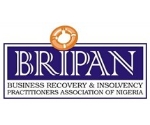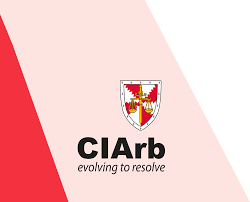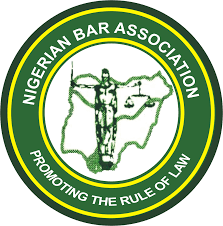Company Voluntary Arrangement In Nigeria: A Complete Guide
The Companies and Allied Matters Act (‘CAMA 2020’) introduced innovative provisions such as the Company Voluntary Agreement (‘CVA’). which is aimed at improving business operations in Nigeria as well as protecting the interests of various stakeholders.
Meaning of Company Voluntary Arrangement:
A Company Voluntary Arrangement is a legal agreement between a company and its creditors, which allows a financially distressed company to reach an amicable arrangement with its creditors regarding the repayment of its debts over a fixed period. It is a rescue device available to insolvent Companies to avoid liquidation.
For a better understanding of the CVA, let’s examine the ‘Pre-CAMA’ 2020 insolvency regime.
Prior to the enactment of CAMA 2020, The formal recourse taken by creditors when a company goes insolvent were limited to:
- (i) Debt recovery action;
- (ii) Appointment of receiver/manager (for secured creditors);
- (iii) Petition for winding up;
- (iv) realization of the security created under the debenture (where debt is secured);
The drawback and downside of the above-listed procedures were that they paid little attention to business recovery, as the only available remedy to encourage business recovery under the old law is the procedure for Arrangement and Compromise, which although requires less intervention from the court still requires great efforts from both the debtor and viable/ interested company willing to merge or acquire the assets of the debtor.
Under CAMA 2020, distressed companies can now opt for e the CVA corporate restructuring option to rescue the company.
Era of The Company Voluntary Agreement
Although not expressly stated in CAMA 2020, the provisions relating to CVA, appear to be largely modeled after the United Kingdom Insolvency Act 1986. And as earlier established, it is a corporate restructuring method that aims to prevent companies from fizzling out by liquidation or harsh economic realities.
In practice, the CVA is usually in form of a proposal, curated by the directors of a company (it could also be the administrator of a company in administration, or the liquidator of a company about to be wound up) presented to the company’s creditors for a composition in satisfaction of some or all of the company’s debts over an agreed period of time.
Importance of CVA
- It is used when a company becomes insolvent, i.e. unable to pay its debt.
- Rather than liquidating the company to offset debts or settle creditors, it encourages the company to enter into an agreement or some other arrangement with its creditors, allowing the Company, time, to restore itself to profitability, and then meet its financial obligations to the creditors in line with the agreement. .
Who May Propose a CVA?
Directors of a company may propose an arrangement to the company’s creditors (Where the company is in administration or liquidation, the administrator or the liquidator respectively, may propose this arrangement).
What is the Procedure for implementing CVAs?
The CAMA 2020 outlines the process for implementing a CVA and this includes:
- A CVA proposal is made to the creditors by the directors of the company, or by the administrator or liquidator, where applicable.
- The proposal is made through a person appointed by the directors, administrator or liquidator of the company (where applicable) to act as a nominee for the purpose of supervising the implementation of the CVA. To qualify as a nominee, the person must be registered with the Corporate Affairs Commission (CAC) and belong to the certain professional bodies such Business Rescue and Insolvency Practitioners Association of Nigeria (BRIPAN), Nigerian Bar Association (NBA), Institute of Chartered Accountants etc.
- Within 28 days of receiving the notice of the proposal for a CVA, the nominee must submit a report to the Federal High Court stating whether, in his opinion, meetings of the company and of its creditors should be summoned to consider the proposal, and the date, time and place at which he proposed the meetings to be held.
The above requirement for the nominee to submit a report to the Court only applies where the company is not in administration or winding up. Where the company is in administration or winding up, the nominee may proceed to summon the necessary meetings without recourse to the Court. The meetings of the members and creditors are to be held separately.
- The CVA proposal may be approved with or without modifications, provided that the proposal itself or any subsequent modification does not affect the right of a secured creditor to enforce its security or the priority and rights of preferential creditors except with the concurrence of the secured creditor or preferential creditors concerned.
- Where the decision taken at the creditors’ meeting differs from that taken at the members’ meeting, the affected party may approach the Court for a resolution.
- The decision relating to the approval of a CVA becomes immediately effective if reached by both meetings of the creditors and members of the company. where the approval of the CVA was made only by the members of the company, the decision must be ratified by an order of court. The company shall be liable to pay the creditors the amounts approved under the CVA.
- The CVA can be challenged in Court on the grounds of unfair prejudice or material irregularity (or both) in relation to either of the meetings, and where such application is made, the Court may revoke or suspend any decision approving the CVA or direct the nominee to summon further meetings to consider a revised proposal with regard to the CVA.
Approval of CVAs and its Effect on Creditors
Note generally that it is an offence for a company’s official to make a false representation or act fraudulently, to obtain approval of an arrangement.
Once the CVA is approved by the meeting of creditors and the meeting of members it becomes binding on all unsecured creditors. This bindingness extends to every creditor entitled to vote at the meeting, as if he were party to the arrangement. This will be the case, irrespective of whether the unsecured creditor:
(i) voted at the meeting, (ii) was present at the meeting, or (iii) received notice of the meeting.
Once bound by a CVA, the unsecured creditor is prevented from taking steps against the company which is contrary to the terms of the CVA. Typically, these terms will be drafted into the CVA to prevent the unsecured creditor from recovering any debt that falls within the scope of the CVA, other than through an agreed mechanism set out in the CVA.
What are the Advantages of CVAs?
(i) Companies remain under control of directors/internal management, and there is no disruption of business operations. This reduces the risk of cash flow insolvency.
(ii) CVAs are private, and there is no requirement for customers or the public to be notified of the process.
(iii) CVAs are flexible and allow debtors to propose diverse arrangements to creditors depending on the debtor’s financial position.
(iv) CVAs are neither complicated nor expensive, when compared to other formal insolvency procedures.
(v) CVAs do not interfere with, or suspend rights of secured creditors, except with their consent.
(vi) Unsecured creditors stand a good chance of being paid their debts, compared to liquidation and administration.
(vii) CVAs are binding on both consenting and non-consenting unsecured creditors.
Conclusion
In summary, a Company Voluntary Arrangement (CVA) is a mechanism available to financially distressed companies to negotiate with their creditors and potentially avoid insolvency or liquidation. However, it is important to note that secured and preferential creditors are not bound CVAs unless they consent to it.
Berkeley Legal is a leading business law firm in, Nigeria. We provide a comprehensive and sophisticated range of specialized and personalized legal services that are designed to meet the various needs of highly diversified local and international businesses.
If you would like to know more about the Company Voluntary Arrangement, and other corporate restructuring methods, please contact info@berkeleylp.com
The information provided in this article is for general informational purposes only and does not constitute legal advice.







